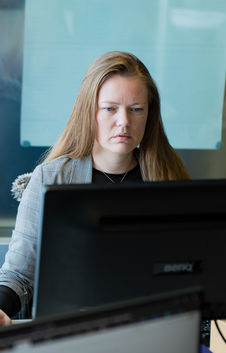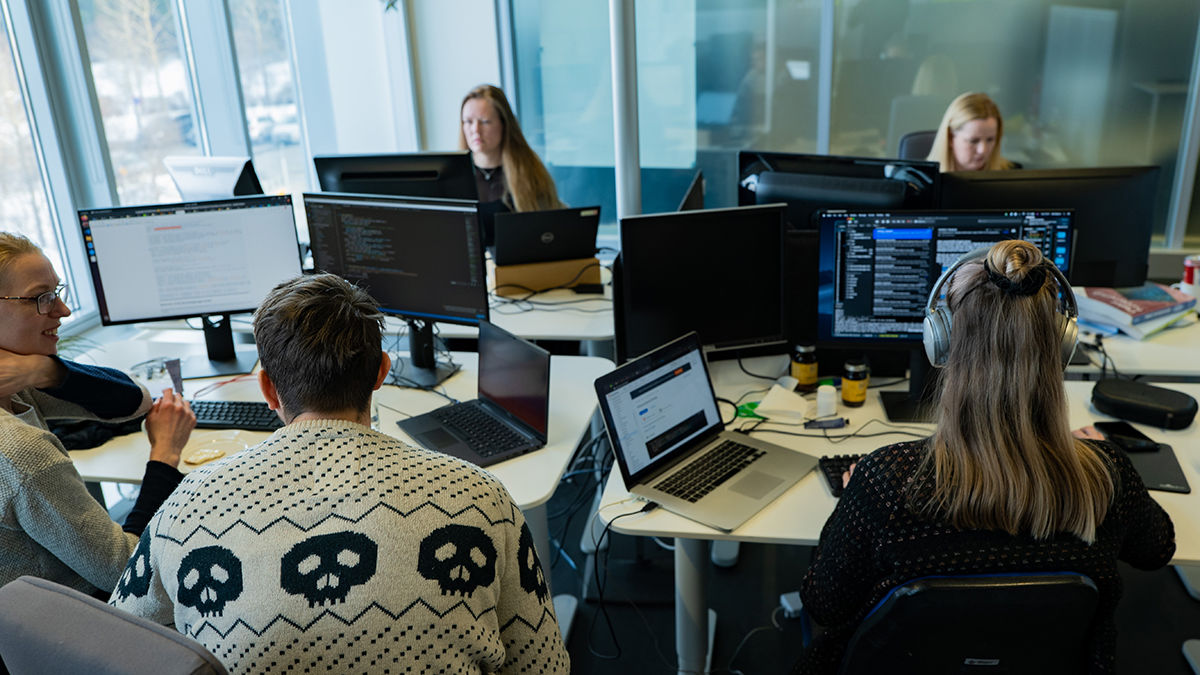We might become a role-model
One of the most pressing dilemmas Icelanders face is the future of their language. The daily lives of Icelanders are so saturated with English, especially through voice controlled technology such as Alexa and Siri, that the government of Iceland decided to do something about it.
A formal plan of action was passed by Althingi, the Icelandic parliament, and is partly carried out by the Language and Voice Lab within RU's CADIA research centre in Artificial Intelligence. The project is interdisciplinary and touches upon many of RU's fields of research such as Computer Science, AI, Engineering, and Project Management. Within the group are also students from the MSc program in Language Technology, which is carried out in cooperation between Reykjavik University and the University of Iceland.

The members of RU's Language and Voice Lab are optimistic. One of them is post-doc Eydís Huld Magnúsdóttir, an accomplished researcher in the field of cognitive workload. Her research, and the groups' as a whole, is giving them every reason to have a positive outlook on the language's chance of survival. "This sort of research is extremely important. Not just for us and the Icelandic language but as our contribution to other areas and countries in a similar position. Our findings are of use to everyone, independent of the location," says Eydís.
If successful, the group's output could help in ensuring a future for the Icelandic language and furthermore, the country could become a role-model for language preservation of small languages. The goal is to give Icelanders the ability to use their native language to interact with their devices. The government's plan of action is for five years and the first year is now well underway.
RU's Language and Voice Lab is developing the following:
- Automatic Speech Recognition, turning spoken word into text
- Text-to-Speech, turning text into spoken words
- Machine Translation, from Icelandic to other languages and vice-versa
- Automatic Summarization, changing long text into a shorter version through AI
Crowdsourcing speech
"The first year is largely dedicated to data gathering. We have impressive results from the crowdsourcing project Samromur ("Common Voice") - which is still going strong - where the public adds to the collection of spoken Icelandic through a website. The project has surpassed all expectations and all goals of the first stage were met. What is also encouraging is that we sense so much interest both domestically and internationally in how Samromur will work out."
 The team hard at work in RU.
The team hard at work in RU.
Outcome is always accessible
How do you manage a project of this size? The answer is clear. "We set ourselves well-defined goals. Each group delivers findings regularly and an international quality board reviews the progress on the government's behalf." One of the objectives is to always have something accessible to the public after passing each milestone. "Whether it be an article in a journal, a database, or a code on Github."
Nine companies and organisations, specialised in linguistics and Natural-Language Processing, are collaborating on the action plan issued by the government: Reykjavik University, University of Iceland, the Arni Magnusson Institute for Icelandic studies, Blindrafelagid (BIAVI), RUV (national radio), Creditinfo (media monitoring), Tiro ehf., Grammatek ehf., and Miðeind ehf. Almannaromur, a non-profit organisation, oversees the project on behalf of the government.

